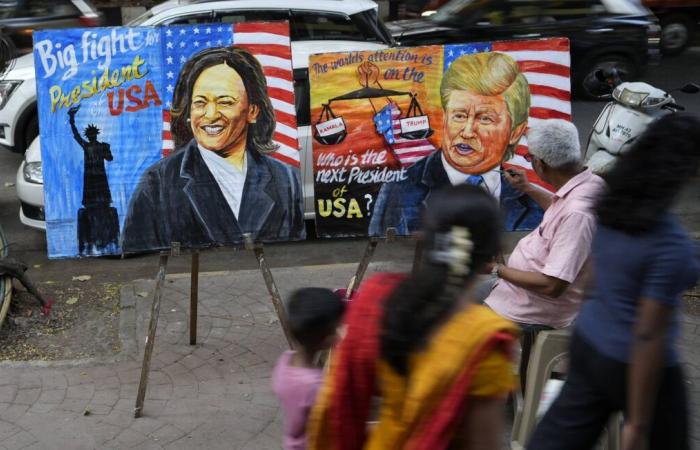In the United States, female leaders are often referred to by their first name – “Kamala”, “Hillary” – where their male counterparts are referred to by their last name, such as “Trump” or “Biden”. Coincidence? Pure chance? Not really. According to a study by the American Academy of Sciences published in 2018, calling a candidate by their last name gives them a higher social status and reinforces their image of authority. This gender bias therefore subtly influences our perception of women in politics, on the one hand by making them more accessible, but also to the detriment of their credibility. This phenomenon is not specific to the United States: in France, during the 2007 presidential election, Nicolas Sarkozy was commonly called “Sarkozy” while Ségolène Royal was referred to as “Ségolène”.
A singular first name, an ordinary last name
For Kamala Harris, this phenomenon took on particular importance during her 2020 campaign, when her team chose to adopt it as a strategy, transforming her first name “Kamala” into a real brand. This deliberate choice is based on the uniqueness of “Kamala”, a first name that sticks in mind and reflects her multicultural Indian and Jamaican origins. A first name which thus becomes a symbol of diversity in a predominantly white American political landscape. The last name “Harris” being relatively common, the use of the first name also made the candidate more identifiable.
Her campaign's social networks, named “Kamala HQ”, the “KAMALA” signs during her rallies, and the chants of her supporters (“Kamala! Kamala!”) illustrate this decision: by focusing on her first name, the The vice-president's campaign sought to build a close relationship, particularly with Southeast Asian communities, for whom “Kamala” evokes an inclusive and authentic representation.
A double standard
This strategy, however, has a double edge. By making the candidate more accessible and human, the use of her first name could paradoxically diminish her authority. Where men, referred to by their last name, benefit from a more formal and solemn image, female candidates can be perceived as friendly, but at the risk of seeing their credibility diminished. As the American Academy of Sciences study points out, this familiarity risks making women more likeable, but less honorable.
Our file on the American presidential election
By embracing this bias, Kamala Harris' campaign attempted to turn this disadvantage to its advantage by making it a symbol of diversity and closeness. However, this choice exposes a double standard in terms of candidate representation. Perhaps one day, female politicians will receive the same treatment as their male counterparts, and their authority will be recognized regardless of first or last name. Will this strategy pay off? Response in a few hours (or days).






